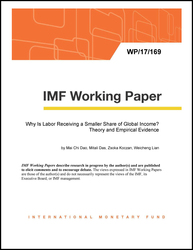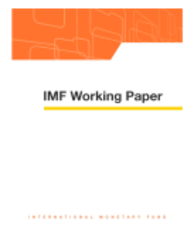
Why Is Labor Receiving a Smaller Share of Global Income? Theory and Empirical Evidence
This paper documents the downward trend in the labor share of global income since the early 1990s, as well as its heterogeneous evolution across countries, industries and worker skill groups, using a newly assembled dataset, and analyzes the drivers behind it. Technological progress, along with varying exposure to routine occupations, explains about half the overall decline in advanced economies, with a larger negative impact on middle-skilled workers. In emerging markets, the labor share evolution is explained predominantly by global integration, particularly the expansion of global value chains that contributed to raising the overall capital intensity in production.
Publication date: July 2017
ISBN: 9781484311042
$18.00
Add to Cart by clicking price of the language and format you'd like to purchase
Available Languages and Formats
| English |
Prices in red indicate formats that are not yet available but are forthcoming.
Topics covered in this book
This title contains information about the following subjects.
Click on a subject if you would like to see other titles with the same subjects.
labor share , routinization , automation , global value chains , Aggregate Factor Income Distribution
Summary



